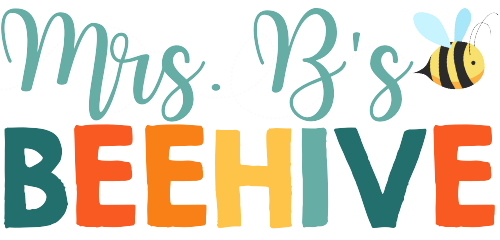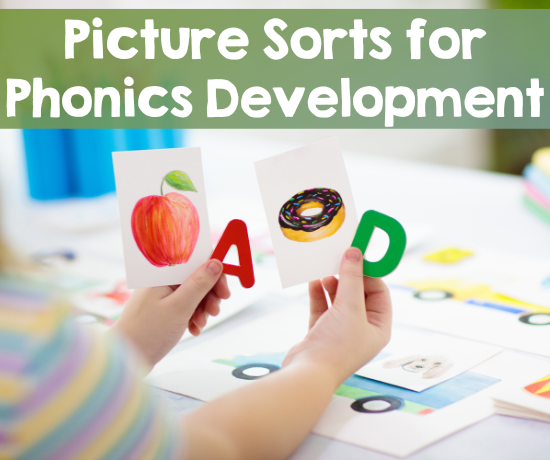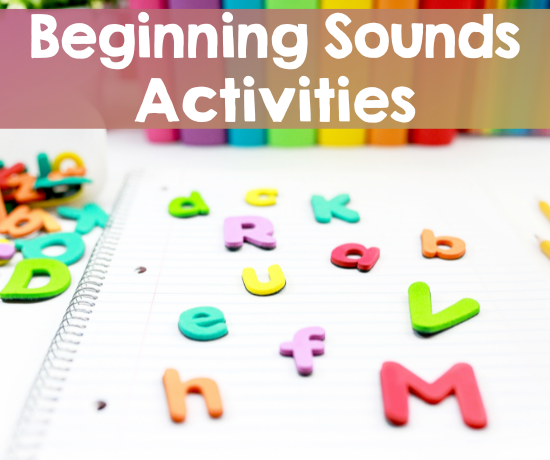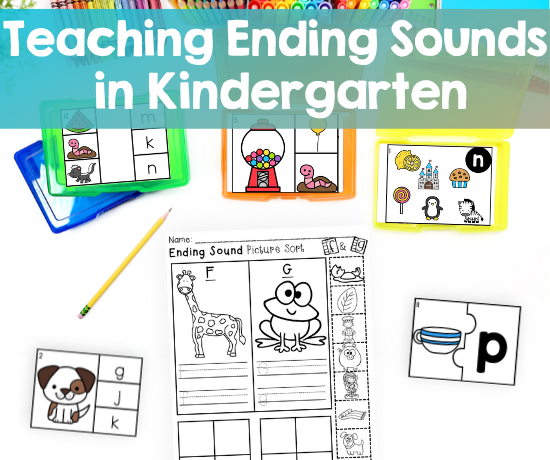Spelling phonetically is an important skill for students to master. While it may seem like a daunting task, there are many strategies that teachers can use to help young students learn how to begin the writing process. Read on for some tips and tricks that can make teaching phonetic spelling easier for everyone involved.
Frustration can come quickly when you start a writing workshop in your classroom. You expect students to write whole sentences phonetically. Some students jump in with both feet and others doubt their abilities.
So what is phonetic spelling? With phonetic spelling, students listen to the sounds they hear in the word and write them as they hear them. The sentence (I see a bird in a tall tree.) turns into:
I se a brd in a tol tre.
If I see a sentence that looks like the one above as we start a writing workshop I am extremely happy! Later we will learn to apply knowledge of sight words and memorized spelling of different words. We will also start to learn more phonics rules like blends, digraphs, CVCE words, etc. but this is a great start! So how do we get there?
Strong Letter Knowledge
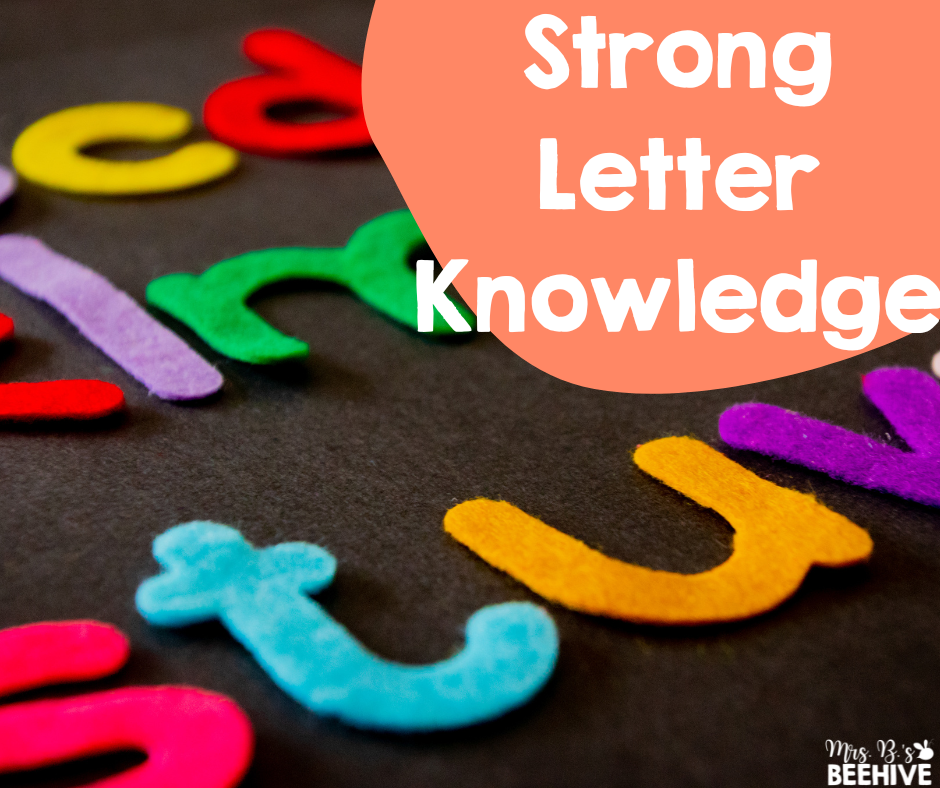
Many language arts curriculums that I’ve used want students to start writing right at the beginning of the school year. I understand they want students to get used to putting pencil to paper, but that system didn’t work well for me or my students. There was a lot of frustration and I felt like our time could’ve been better spent.
In my opinion, to help students feel confident spelling phonetically you need to put in a lot of extra time in working on letter sounds and sound isolation in words.
Consistent work on each letter sound should happen in August and September. Use your writing workshop time for this! Moving into October-December students should work on isolating the beginning sounds in words, then the ending sound, and finally the medial sounds they hear.
If they have all their letter sounds down and can isolate sounds a the end of December you will be ready to start a writing workshop with them when they come back in January.
Are you in need of some letter-sound resources to help your students master this skill? Check out these resources that I use at all times of the day to practice letter recognition. Use these during:
- Morning Work
- Phonics Instruction
- Early Finisher Work
- Literacy Centers
- Small Group Work
- Homework
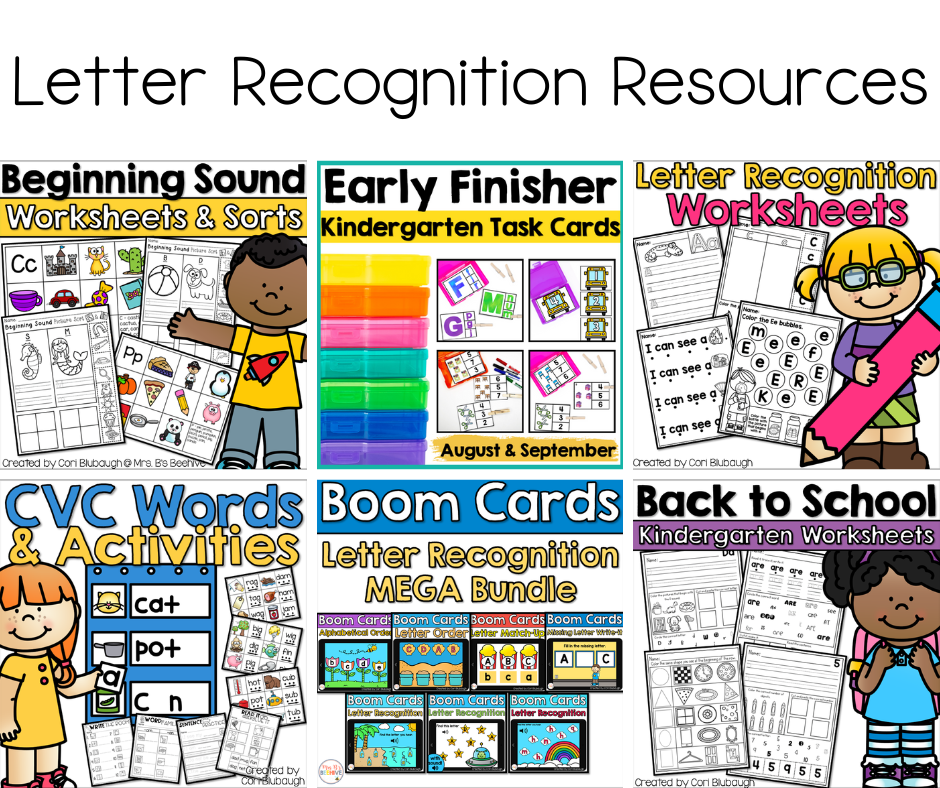
- Beginning Sounds Worksheets and Picture Sorts
- August and September Early Finisher Task Cards for Kindergarten
- Letter Recognition Worksheets
- CVC Words and Activities
- Letter Recognition MEGA Bundle Boom Cards
- Back to School Kindergarten Worksheets
Spelling Phonetically as a Group

Even if you wait to start your writing workshop until the first of the year like I do, you can still provide lots of writing practice to your students during the first half of the year.
- Ask for a helper to write on the whiteboard. Start with letters and ask students to come up and fill in a missing letter. As their knowledge grows, have them fill in known sight words, medial vowels etc. Do this during ALL subject matter instruction to help them gain confidence in their abilities.
- Show yourself making mistakes – write a word out and model how to write the sounds you hear. I write out the word and ask them if I spelled it perfectly. I say, no I didn’t but that’s okay because we’re in kindergarten and we don’t have to spell things perfectly! Get them thinking early about how mistakes are okay because we’re growing!
- Label everything – any chance you get have the students label things! This can be done on the whiteboard or on post-it notes around the classroom. Get students used to spelling phonetically and not worrying about any mistakes they make.
Scaffold the Transition
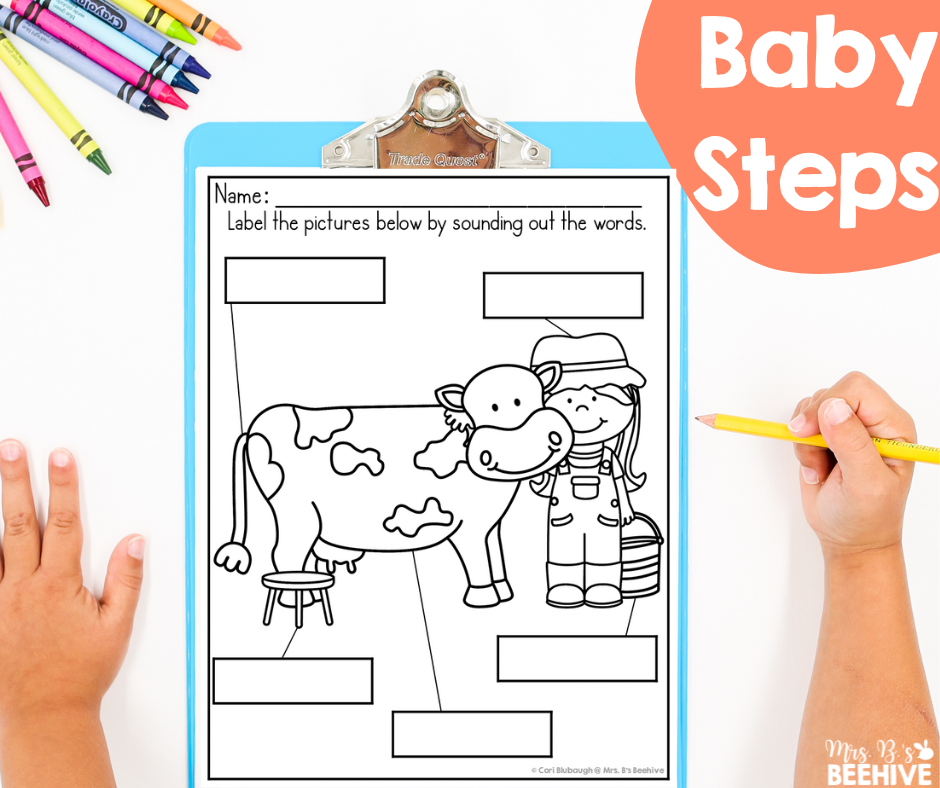
The leap from writing letters and words into sentences can be extremely daunting! Every class is so different and some may need extra support.
I created my beginning writing skills resource when I had a class that just wasn’t quite ready to jump into sentence writing. We came back in January and I started my writing workshop lessons, and they failed miserably!
I realized we needed to take a couple of steps back and scaffold the process a little more through structured sentence practice, additional labeling, and guided writing. The beginning writing skills resource gives you just the right amount of practice students need to gain confidence with sentence formation.
I took an extra month doing guided practice with my class and when that month was over they were ready to spell confidently on their own!
Writing Conferences Focused on Spelling Phonetically

As you dive into writing workshop time make sure that you are regularly meeting with students to see their different needs and struggles. I aim to meet with each student for around 5 min. once a week. We set goals together and follow-up on their progress from our last meeting.
One tool I use is this goal-setting poster. It helps me see how many students are struggling with a particular concept. I’ll focus my mini-lessons on a topic that is challenging to them and add in some extra practice during morning work and center time.
This is also the perfect time to reiterate that spelling phonetically doesn’t mean spelling perfectly!
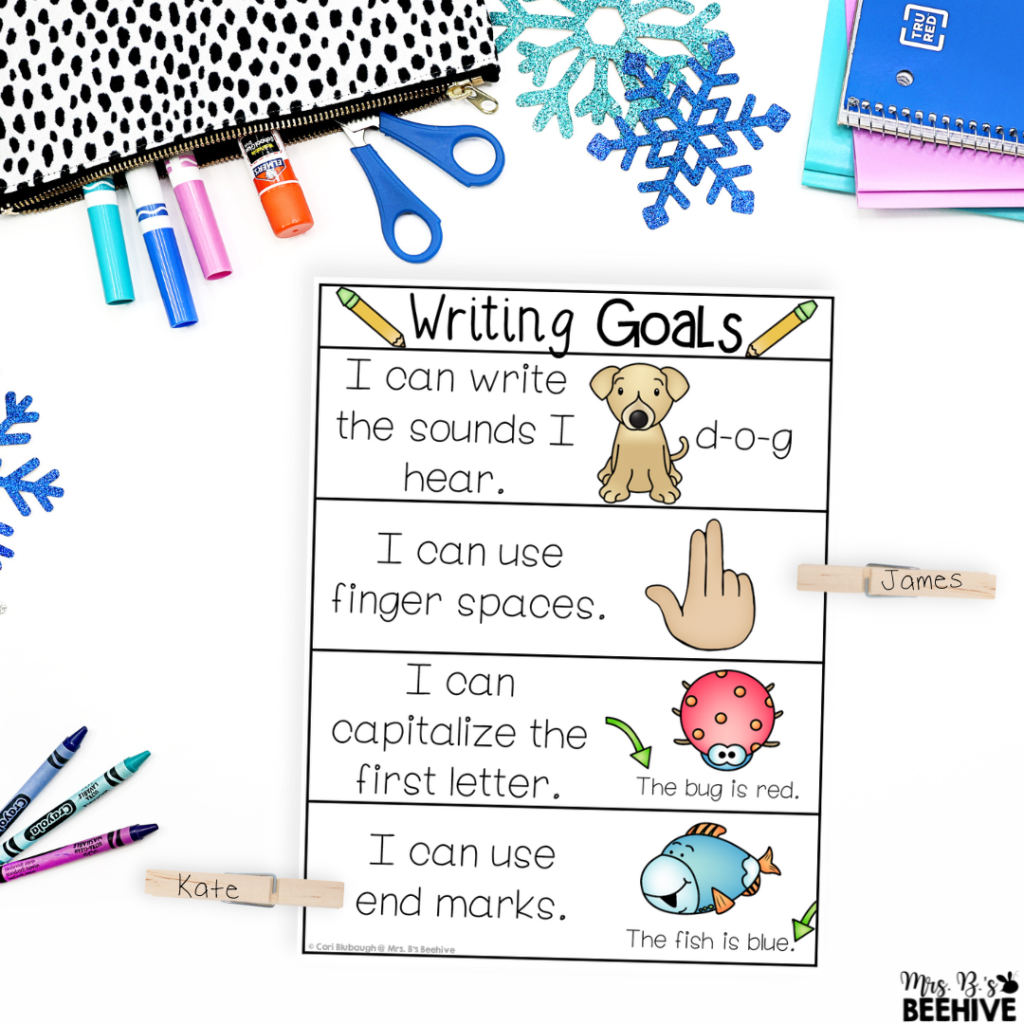
Creating an Environment Where Spelling Phonetically is Encouraged
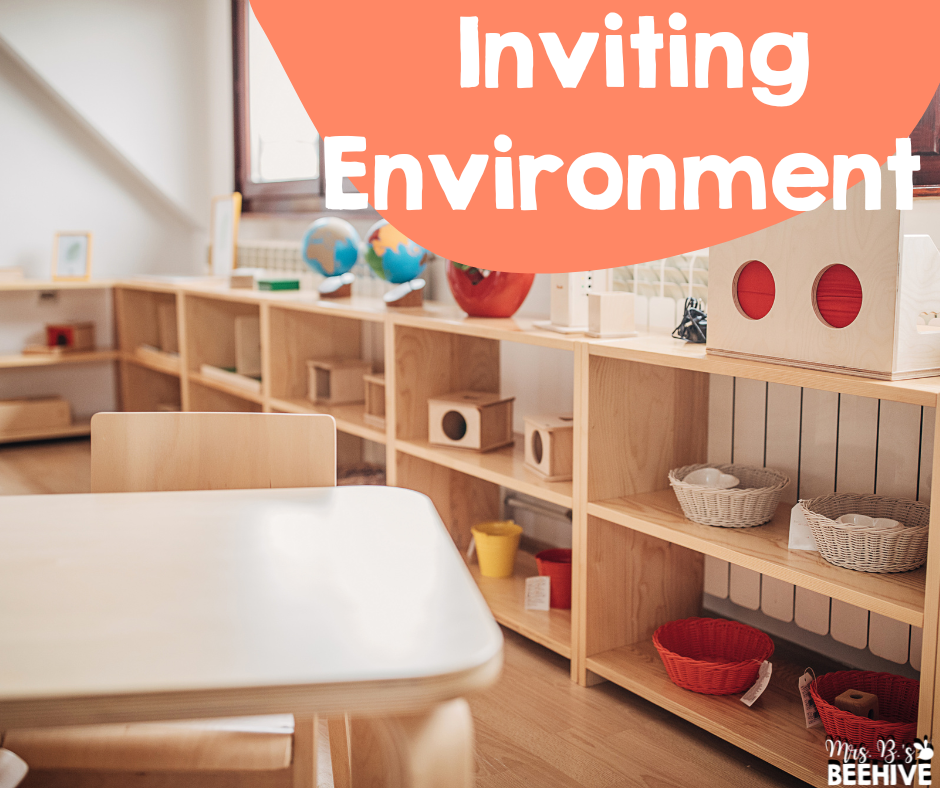
During writing workshop, I like to put on calm classical music, dim the lights a little bit, and encourage them to work in a space that feels right for them.
I’m a big proponent of flexible seating, but I know it’s not for everyone. The main goal is to get the students to feel calm and comfortable and ready to take risks.
In our mini-lessons, we read lots of books about mistakes and having a growth mindset. Here are a few of my favorites:

- The Magic of Me – My Magical Choices
- The Most Magnificent Things
- The Girl Who Never Made Mistakes
- The Magical Yet
- Mistakes That Worked
- The Thing Lou Couldn’t Do
Getting students to feel confident spelling phonetically can be a challenge, but if you set them up for success with prior knowledge and a willingness to make mistakes you’ll have confident writers in your classroom in no time! Check out the other writing resources I have on my website to help your students grow as writers!
